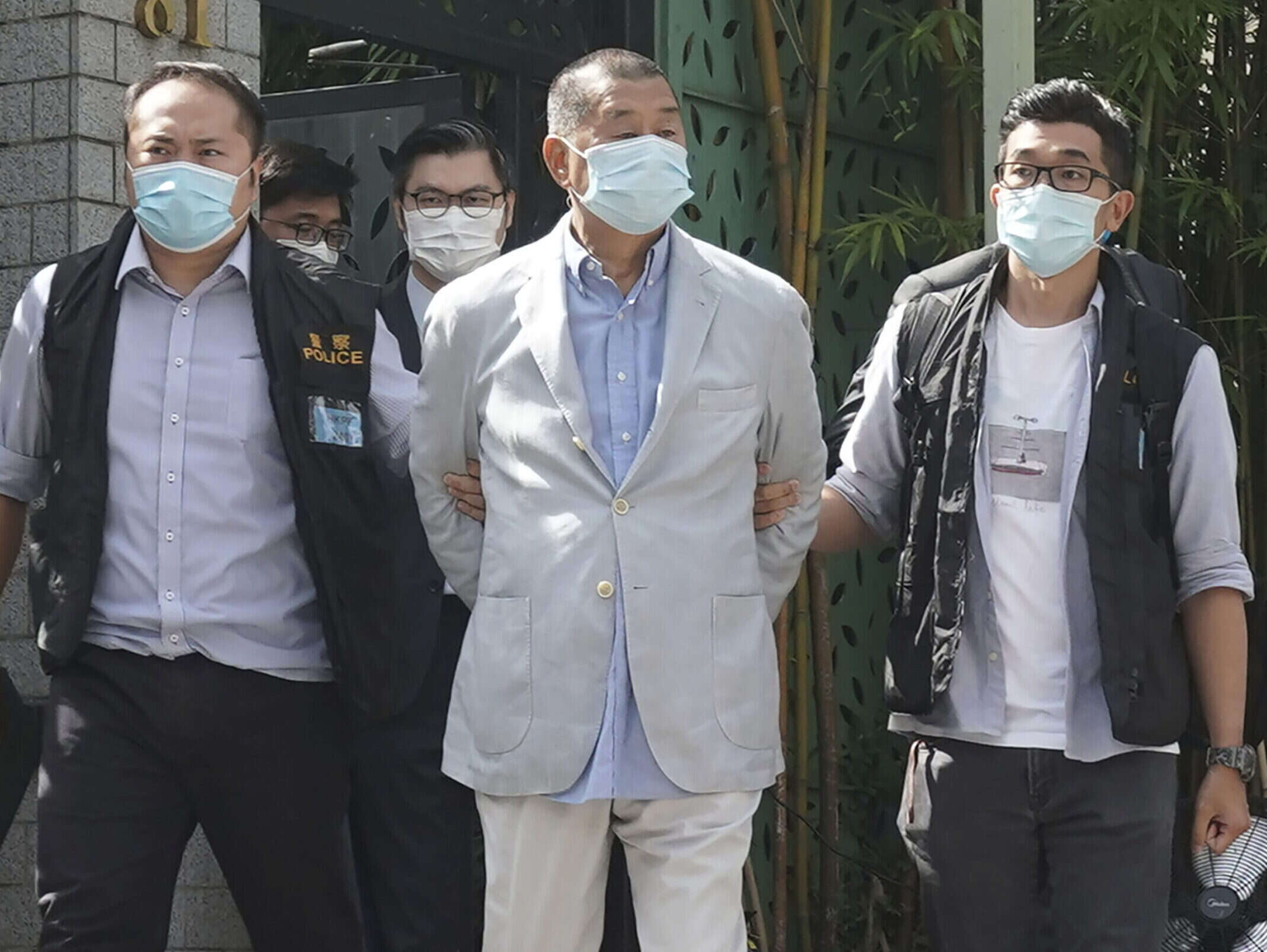
Pro-democracy supporters in Hong Kong have been lining up to buy a newspaper critical of China’s ruling Communist Party after its headquarters were raided.
Hundreds of thousands of people took to the streets of Hong Kong last year to demand full democracy, many of whom were egged on by the Apple Daily.
They have been lining up at news stands across the city to buy that same paper, handing over ten Hong Kong dollars (95p) a copy in a bid to help the publication – and press freedom – survive.
The public show of support came a day after police rounded up ten people, including the paper’s founder Jimmy Lai (pictured), and raided its headquarters.
The move reinforced fears that a new national security law would be used to suppress dissent in Hong Kong after months of anti-government protests shook the city’s leadership and the central government in Beijing last year.
Police have expanded their use of the law since it took effect six weeks ago, first arresting protesters with slogans deemed to be in violation and then activists over online posts.
Media tycoon Lai and his Next Digital media group have been the largest targets to date.
Freelance journalist Wilson Li, who works for ITV News, was also arrested on Monday on suspicion of collusion with foreign powers under the new national security law.
That people protested by buying a newspaper rather than by taking to the streets shows how much the climate has changed since the stormy protests last year. People also bought Next Digital stock to show support, driving its price up more than 300% on Tuesday.
The Apple Daily, known for its celebrity coverage as well as its condemnation of China’s authoritarian rule, remained defiant, printing 350,000 copies – five times its usual print run – after police investigators left Next Digital and told employees they could go back to work.
Queues formed at news stands in a public show of support, and Apple Daily said it would print an additional 200,000 copies. “Apple Daily will fight on,” the newspaper said on its front page.
The fate of Hong Kong’s 7.5m residents ultimately lies in the hands of the Communist Party leadership in Beijing.
The fear in Hong Kong, which has its own laws and courts and greater freedoms than mainland China, is that the Communist Party wants to change the territory over time into a city similar to those on the mainland.
Press freedom is just one characteristic that separates Hong Kong from the rest of China.
The Index on Censorship, which campaigns for free speech, called on the UK Government to intervene and protect human rights in Hong Kong.
The International Federation of Journalists, supported by the National Union of Journalists in the UK, said: “The authorities must stop all the forms of intimidation against the media and supporters of democracy.
“The IFJ urges the Hong Kong government to immediately release Jimmy Lai and drop all charges against him.”
Picture: AP/PA Wire
Email pged@pressgazette.co.uk to point out mistakes, provide story tips or send in a letter for publication on our "Letters Page" blog
